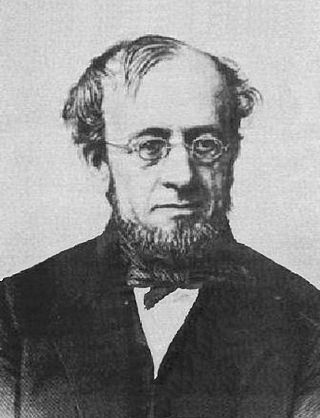
Elisha Hunt Allen was an American congressman, lawyer and diplomat, and judge and diplomat for the Kingdom of Hawaii.

McCully is a variation of McCulloch, a common surname of Scottish origin. McCully may refer to the following people:

The Legislature of the Hawaiian Kingdom was the bicameral legislature of the Hawaiian Kingdom. A royal legislature was first provided by the 1840 Constitution and the 1852 Constitution was the first to use the term Legislature of the Hawaiian Islands, and the first to subject the monarch to certain democratic principles. Prior to this the monarchs ruled under a Council of Chiefs.
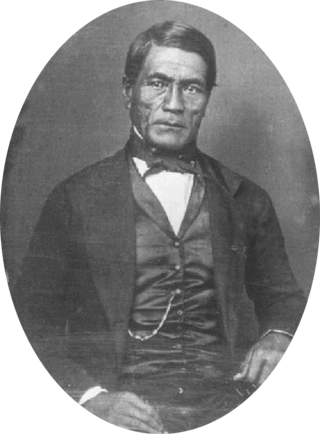
Ioane "John" Kaneiakama Papa ʻĪʻī (1800–1870) was a Hawaiian politician and historian.

Charles Kanaʻina was an aliʻi of the Kingdom of Hawaii, prince consort of Kuhina Nui, Kaʻahumanu III and father of William Charles Lunalilo, the 6th monarch of the Kamehameha Dynasty. Kanaʻina was a descendant of several figures from ancient Hawaiian history, including Liloa, Hakau and Umi-a-Liloa of Hawaiʻi Island as well as Piilani of Maui. He served on both the Privy Counsel and in the House of Nobles. He was named after his uncle Kanaʻina, a name that means "The conquering" in the Hawaiian Language. This uncle greeted Captain James Cook in 1778 and confronted the navigator before he was killed.
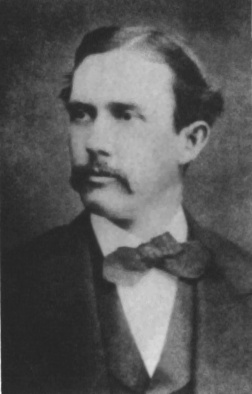
Albert Francis Judd was a judge of the Kingdom of Hawaii who served as Chief Justice of the Supreme Court of Hawaii through its transition into part of the United States.

Clarence Hyde Cooke was a politician and businessman in Honolulu.

Samuel Mills Damon was a businessman and politician in the Kingdom of Hawaii, through the Republic of Hawaii and into the Territory of Hawaii.
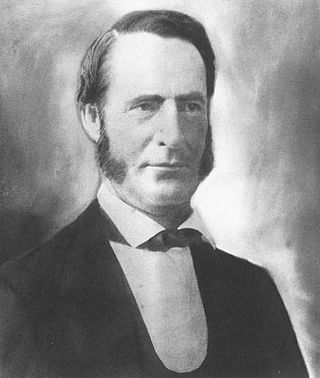
Charles Coffin Harris (1822–1881) was a New England lawyer who became a politician and judge in the Kingdom of Hawaii who firmly supported the monarchy as an independent nation. After serving in a number of cabinet posts, he became chief justice of the supreme court.

Albert Francis Judd Jr. (1874–1939) was a lawyer and trust officer in the Territory of Hawaii.
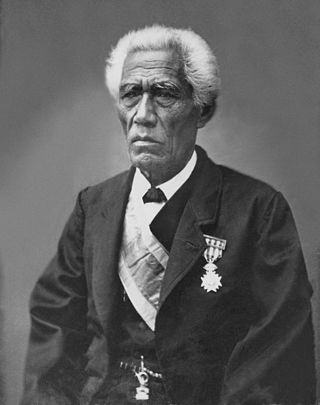
In the Matter of the Estate of Charles Kanaina was the litigation over the estate of Charles Kanaina that occurred between 1877 and 1881 brought by claimants under Kanaina's maternal grandmother, Moana and her four husbands, for quiet land titles ending with the adjudication of several heirs.
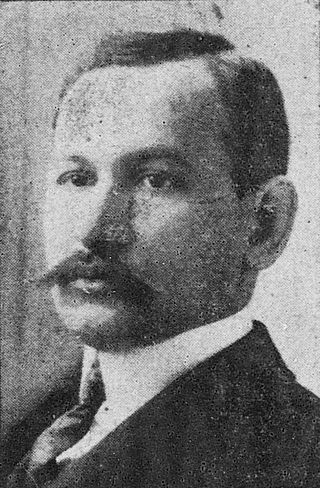
Carlos Appiani Long was an attorney and politician of the Territory of Hawaii. In his youth, he was a college football player at Georgetown University. His middle name is often spelled Appiani, Appianni or Apiani.

Robert Grimes Davis was an early lawyer and judge of the Kingdom of Hawaii who served many different posts for Hawaii and the Republic of Peru. He was also known as Lopaka, the Hawaiian version of Robert.
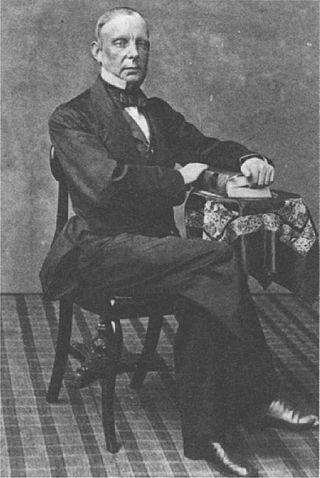
George Morison Robertson was an early politician and judge in the Kingdom of Hawaii. Born in Scotland, he settled in Hawaii in 1844 during the whaling era. During his career in Hawaii, he served in many political and judicial posts including circuit judge and police court judge, member of the Board of Commissioners to Quiet Land Titles, a multiple-term representative in the Hawaiian legislature, Speaker of the House of Representatives, Associate Justice of the Supreme Court of Hawaii and Minister of the Interior.

William Austin Whiting was an American lawyer and politician of the Kingdom, Republic, and Territory of Hawaii. He served as Attorney General of Hawaii and was an associate justice of the Supreme Court of Hawaii. During his college years, he was captain of the 1875 Harvard Crimson football team.
Pius F. Koakanu was a Hawaiian high chief (aliʻi) from the island of Kauai who served as a politician during the Kingdom of Hawaii and the Kahu or Keeper of the Royal Mausoleum of Hawaii at Mauna ʻAla.

Following the January 20, 1891 death of King Kalākaua in San Francisco, his embalmed body arrived at Honolulu Harbor aboard the USS Charleston, draped in black with its ensigns at half mast. His sister Liliʻuokalani was designated his successor.
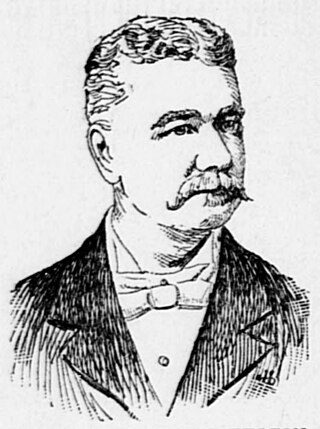
Richard Frederick Bickerton was a British-born associate justice of the Supreme Court of Hawaii and a member of Liliʻuokalani's Privy Council of State. He served one term as a legislative representative from Hamakua on the island of Hawaii.
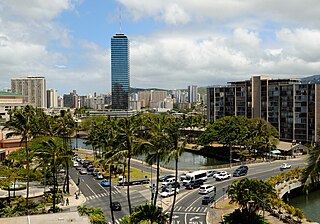
McCully is a neighborhood of census designated place Honolulu, Honolulu county, Hawaii, on the island of Oahu.


















